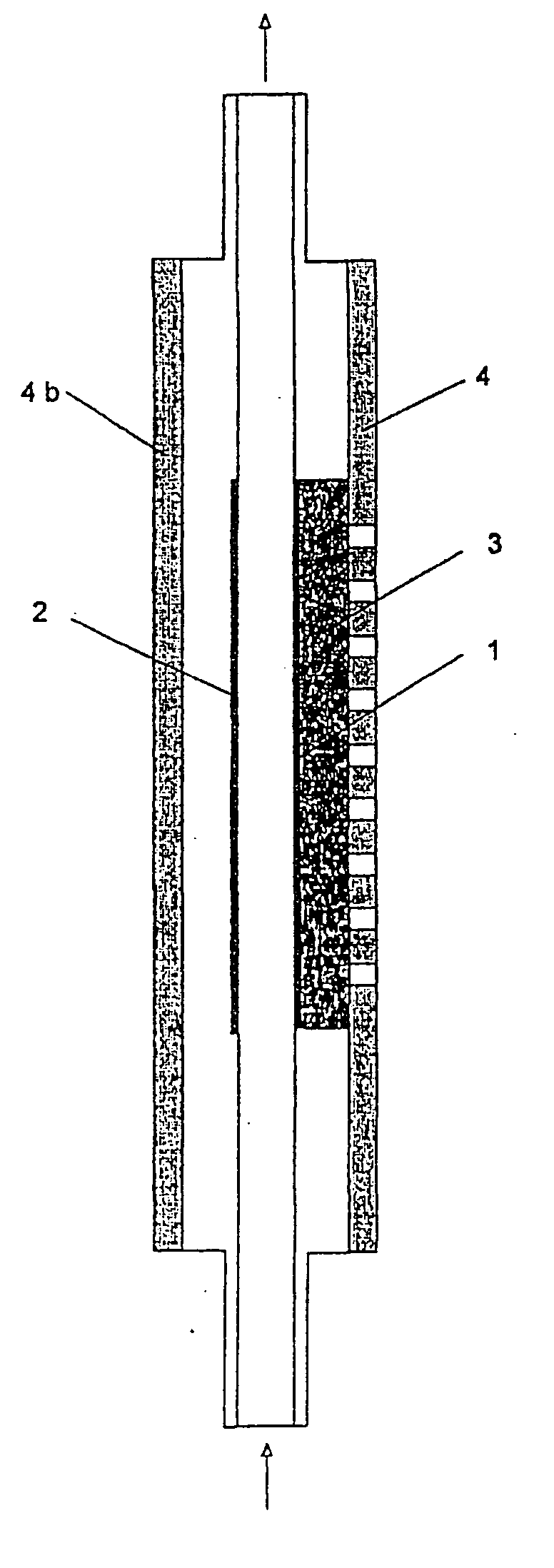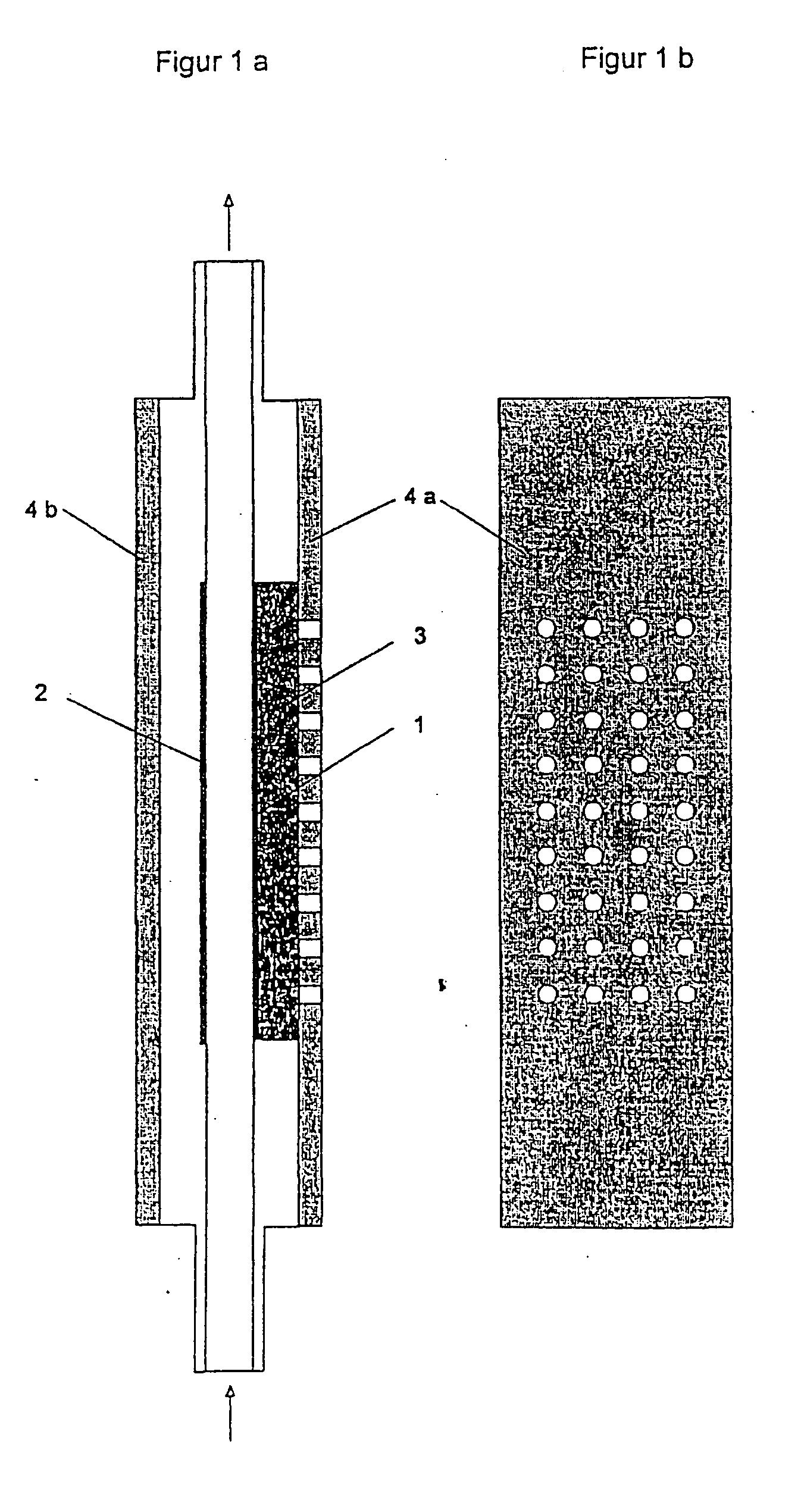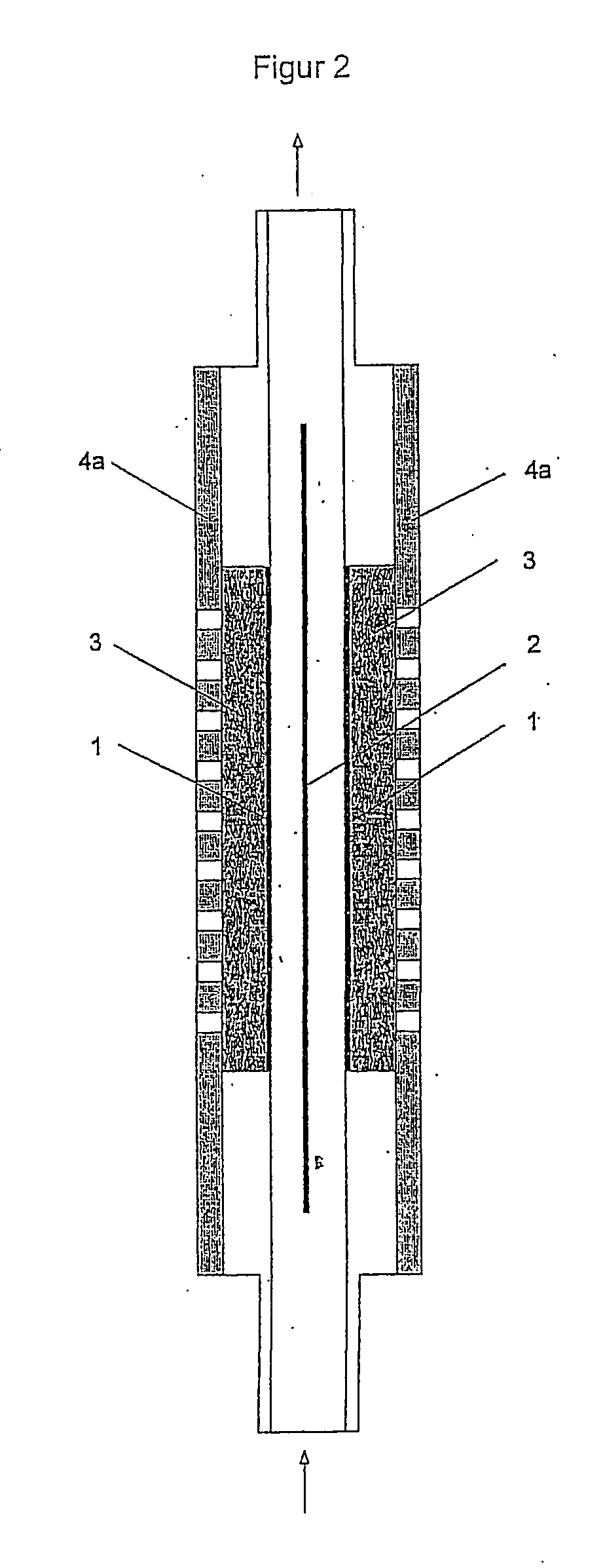Method for electrolytic water disinfection without cathodic hydrogen evolution
- Summary
- Abstract
- Description
- Claims
- Application Information
AI Technical Summary
Benefits of technology
Problems solved by technology
Method used
Image
Examples
Embodiment Construction
[0026] 1. FIG. 1a is a sectional view of a complete electrolytic cell. The cell follows the principle of a frame-type pressure cell. Between two pressure plates (4a and 4b) are fixed an anode (2) and a gas-diffusion electrode as the cathode (1). The pressure plate 4b (FIG. 1b) is here perforated over the area of the gas-diffusion electrode. The gas-diffusion electrode is mechanically stabilised over the entire surface by a porous support plate (3). A porous filter material (40% porosity) of pure polyethylene was used as the support material. Unrestricted access of air to the gas-diffusion electrode is possible. Water flows through the cell from top to bottom.
[0027] a) For the electrolytic generation of free chlorine as a disinfectant, a titanium electrode coated with iridium, produced by the company Metakem GmbH Usingen, is used as the anode. The gas-diffusion electrode comprises a metal wire netting or expanded metal (e.g. Ni, Fe, Ti) and a graphite layer with catalysts (e.g. Mn, ...
PUM
| Property | Measurement | Unit |
|---|---|---|
| Mass | aaaaa | aaaaa |
| Current density | aaaaa | aaaaa |
| Current density | aaaaa | aaaaa |
Abstract
Description
Claims
Application Information
 Login to View More
Login to View More - R&D
- Intellectual Property
- Life Sciences
- Materials
- Tech Scout
- Unparalleled Data Quality
- Higher Quality Content
- 60% Fewer Hallucinations
Browse by: Latest US Patents, China's latest patents, Technical Efficacy Thesaurus, Application Domain, Technology Topic, Popular Technical Reports.
© 2025 PatSnap. All rights reserved.Legal|Privacy policy|Modern Slavery Act Transparency Statement|Sitemap|About US| Contact US: help@patsnap.com



